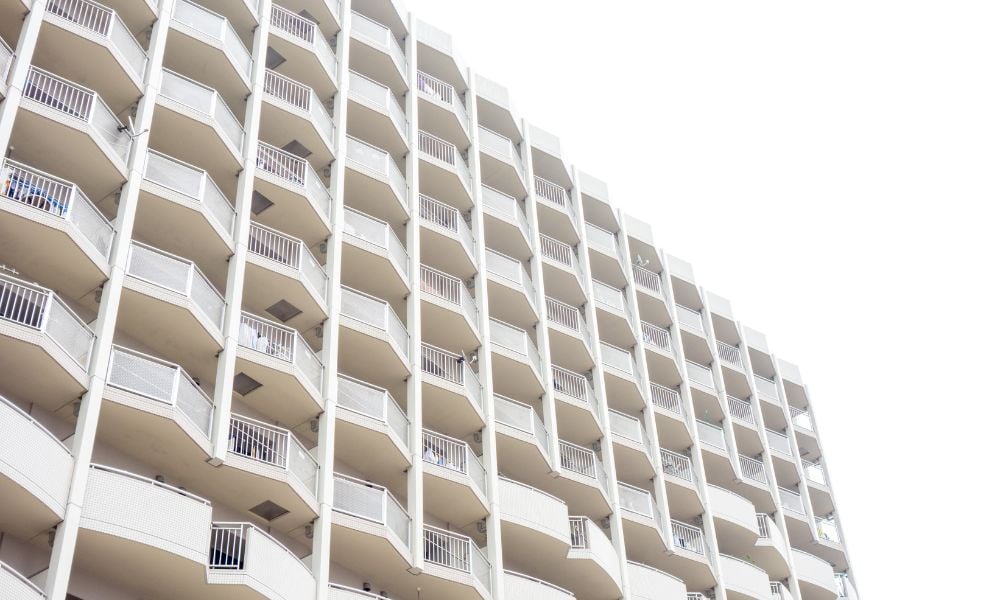Insurance hikes, new building regulations push older condo owners to sell below asking

Florida’s condominium market is facing a deepening crisis as owners contend with rising insurance premiums, steep repair assessments, and restrictive lending conditions that have dramatically altered the financial landscape for thousands of residents.
The resulting surge in listings is pressuring prices, especially in older buildings, and reshaping buyer behavior across the state.
Rob and Karen Dickson, retirees who moved from New York to a Punta Gorda condo in 2021, found their coastal dream upended in just two years. Their insurance premiums doubled after a hurricane, and they were hit with a $7,200 special assessment.
Homeowners’ association (HOA) fees jumped from $800 to $1,000 a month. Facing mounting costs and longing for family, they sold, $20,000 below asking, and returned to New York.
“Florida is actually paradise,” Rob told The Wall Street Journal. “It was superb, but things changed.”
That change is rippling across the state. While newer condos in areas like Miami-Dade are still appreciating, posting an 8% median price increase in February, older buildings are seeing values collapse.
Data from Florida Realtors showed condo prices statewide have fallen between 1% and 6% annually since July 2024, with a 3% drop reported in February. Buildings over 30 years old have lost 22% of their value over two years, according to ISG World, even as newer units gained 12% over the past decade.
The regulatory fallout from the 2021 Surfside condo collapse, which killed 98 people, is a major driver. Florida enacted stricter rules requiring structural inspections and reserve funds for repairs, with a compliance deadline of December 2024. Yet less than a quarter of condo associations have confirmed compliance, according to the Department of Business and Professional Regulation.
With Florida accounting for 20% of all US condos, and more than half of those being at least 30 years old, the impact is vast. Buyers and lenders alike are growing wary.
Read next: What's happening in Florida's housing market?
“If these buildings are subject to reserve requirements, buyers want to make sure they’re getting into a situation where the condos have their act together,” Brad O’Connor, chief economist at Florida Realtors, told the Journal. “Whether it’s the lenders or the buyers themselves, we’ve seen a slowdown in condo demands.”
In March, the supply of existing condo-townhouse units was at 9.7 months, well into buyer’s market territory, compared to 5.3 months for single-family homes. According to Florida Realtors president Tim Weisheyer, sellers will need to lower prices to stay competitive.
“The median price for condos and townhouses in February was down over 3% year-over-year, falling to $315,000,” Weisheyer said. “Buyers have gained an advantage here, and sellers increasingly will have to concede on price.”
Financing hurdles are making things worse. Mortgage lenders are steering clear of properties undergoing major repairs. “They won’t want to finance anything until the repairs are done,” said Anibal Torres, a lender at CMG Financial.
Fannie Mae has blacklisted over 1,400 Florida condos, more than any other state, for inadequate insurance or structural issues, making them nearly impossible to finance.
Jake Harrington, president of a condo board in Boynton Beach, said a $7 million renovation, averaging $15,000 per unit, was supposed to add value. But a clerical error in documentation labeled the property as partially hotel-operated, landing it on Fannie Mae’s blacklist and freezing sales.
“This is going to be a beautiful property restored beyond its original state after we get off this project,” Harrington told The Journal. “Except we’re on the blacklist for a typo. It’s just frustrating.”
“We’ve got a problem with our condo market right now,” Gov. Ron DeSantis said at a recent event in Miami. “We have a problem that was introduced by legislation that was passed in recent years.” While DeSantis acknowledged the need for reform, no new policies have yet been announced.
Stay updated with the freshest mortgage news. Get exclusive interviews, breaking news, and industry events in your inbox, and always be the first to know by subscribing to our FREE daily newsletter.



